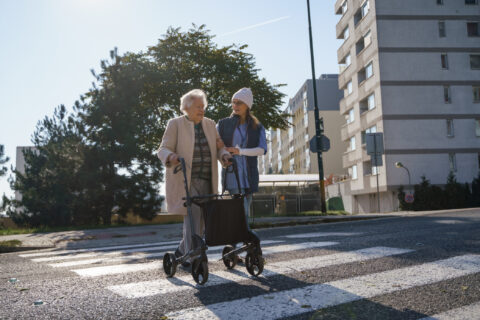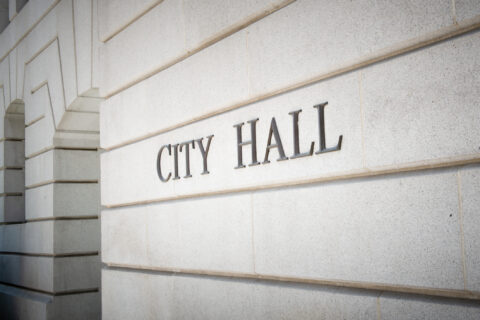Owning a business offers individuals an opportunity to increase their and their families’ economic mobility. Economic mobility is a person’s movement up or down the economic ladder over a lifetime. Small business owners are members of the community, residents who support their families and their children through their business profits. The COVID-19 pandemic’s economic consequences have pushed many municipalities to rethink the business sectors that are operating within their jurisdictions, including what supports small businesses need to stay open, and who is accessing city services and supports.
According to the Small Business Administration (SBA), there are 32.5 million small businesses in the country and they employ more than 61 million people. The Federal Reserve Bank of New York found that 58 percent of Black-owned businesses were at risk of financial distress before the pandemic, compared with about 27 percent of white-owned businesses. Black, Indigenous, and people of color (BIPOC) business owners can have a harder time accessing business capital and lack the networks to reach new customers or the support needed to grow their business. Many municipalities across the country have recognized the importance of small businesses and have supported them through CARES Act and ARPA funds.
Several cities that are part of NLC’s Equitable Economic Mobility Initiative (EEMI) recognized that they can expand economic mobility for residents by working with their small business communities. They are doing this by engaging the small business community to further understand the demographics and needs of their small business owners. They are gathering feedback on services the municipalities currently offer and where there may be unmet needs. Collectively, these efforts aim to create strategies that build and support small businesses.
The City of Fresno recognized that they needed to better understand the needs of their small business community and used funds they received from NLC to conduct focus groups with small business owners from targeted populations throughout their community. These conversations have helped Fresno connect with groups that did not trust the city or understand the process to become licensed. These focus groups have allowed the city to better understand what they were doing well and where they could improve to help BIPOC business owners understand the process of applying for a business license. Becoming licensed with the city offers other supports and services to business owners. Additionally, the city is developing a digital hub that will provide resources and supports to small business owners to make these resources accessible to non-native English speakers.
The City of Charleston, SC recognized that they needed to improve their data collection to better understand the minority business owners that were operating within their community. Through their EEMI efforts, they have successfully changed their business license application to capture demographic information. Through their next round of license renewals, the city expects to gain this important data to better assess the services, programs, and policies that impact these individuals. In short, they are working to make sure that local government is more responsive to the needs of the community.
Research has found that disproportionately people over 55 own small businesses in the US. As these individuals age, there is an opportunity to discuss succession planning that could enable the business to continue operation thereby keeping jobs in communities and some cases transferring wealth from one generation to another.
The City of Denver recognized this issue within its business community. Through their EEMI efforts, the city has developed the Family Business Preservation Program that will help small business owners within their historically disinvested neighborhoods strengthen their operations, mitigate involuntary displacement, and increase multigenerational business ownership as a way to build community wealth.
Cities that are interested in supporting small BIPOC businesses operating within their community should first confirm who these owners are, how many small businesses are operating within their jurisdiction, and what their needs may be depending on the business owners’ cultural preferences and business industry type. Additionally, municipalities have an opportunity to celebrate those owners that are supporting their employees through livable wages and advance supplier diversity by changing their procurement practices.
Connect with Us
Sign up for the Economic Mobility Peer Network to connect with other cities and hear from leading experts on topics designed to help cities boost residents’ economic mobility using strategies grounded in equity.
In the coming months, NLC will deliver several blogs from NLC’s Equitable Economic Mobility Initiative (EEMI) cohort. These cities are working to improve residents’ economic mobility by leveraging ARPA funding, aligning community partners, and sustainably changing the trajectory for many vulnerable families.








